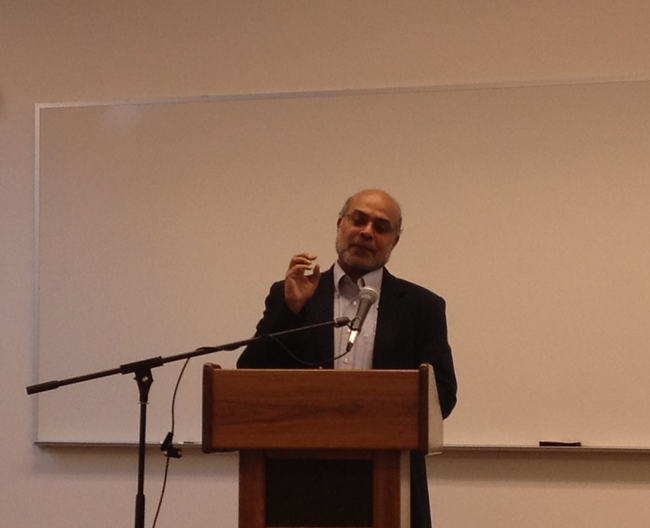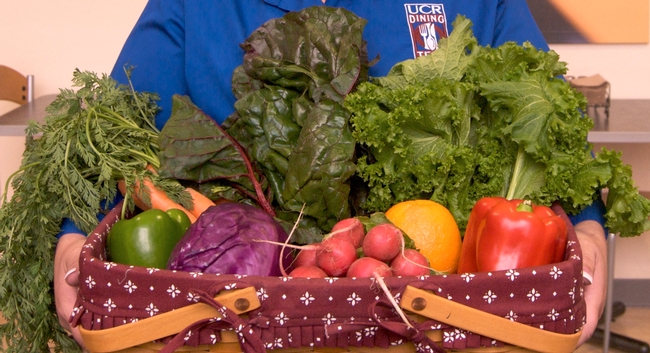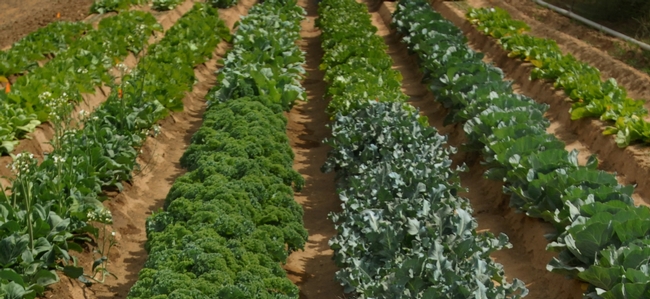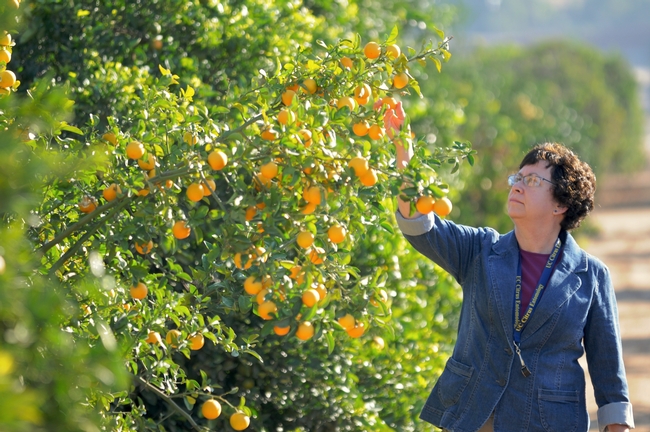Solving the 2050 Hunger Game
The world population is more than seven billion, and by 2050 that number is set to rise to nine billion — an increase of 50 percent since 2000. Can we possibly feed so many people?
Yes, according to Prabhu Pingali, who was invited to UC Riverside last week by the One Health Center to give a talk. Pingali, the deputy director of the Agriculture Development Division of the Bill & Melinda Gates Foundation, has more than three decades of experience in the field of agriculture. His hour-long talk focused on how nine billion people on the planet can be fed.
He explained that agriculture was on no one’s agenda from 1988 to about 2006-2007. But today it is back. “I am in the right profession,” he said, smiling.
He said the world experienced a sharp increase in food prices in 2008 due to a “perfect storm” — a rapid demand for food quantity and quality (in terms of diversity) and a high volatility in food prices — and a large group of people adopted a pessimistic view of the world’s food production thereafter. The world will not be able to feed itself, they warn.
“But we’ve been here before and we have come out of it,” said Pingali, who has authored ten books and more than 100 refereed journal articles and book chapters on food policy, technological change, productivity growth and resource management in the developing world. “Actually, things are not as bad as you think they are. I take a more positive view.”
The audience sat up straight, ears pricked up, eyes trained firmly on Pingali’s slides.
He explained that in 1963 the world experienced a massive food deficit but that by 1970 the overall food outputs matched population growth rates, with Southeast and East Asia showing the fastest rise in productivity.
“Only in sub-Saharan Africa was there a decrease in productivity,” he said. “Technology made the change possible. But technology cannot do it alone. If government support had not also taken place, we would not have seen a change.”
Looking ahead
Pingali’s slides showed how on the demand side in Asia and Latin America the per capita consumption of staple grain is declining rapidly. As incomes increase, he said, the per capita consumption of wheat and corn decreases and diets get diversified, with people seeking higher quality food.
He predicted more consumption of meat, milk and dairy products in the future. In East Asia, meat consumption will be about 80 kg per person per year in 2050 (in 1975, it was less than 20 kg per person per year; in 2000 it was about 40 kg per person per year). Further, in the future much biofuel will be from cellulosic technology and other forms of waste, not grain.
But what about land area? Will there be any left to produce food for two billion more people? Pingali thinks so. He said overall 4.2 billion hectares of land on the planet are suitable to cultivation; of this area, only about 1.7 billion hectares are already under cultivation.
“We will see an intensification of land already under cultivation, that is, growing a crop more frequently on the same land,” he said. “One reason these areas are currently not productive is poor soil — acidity, erosion, sloping lands, low organic matter and low nitrogen.”
Pingali predicts water scarcity will be a growing constraint. He explained that currently enormous wastage of water occurs in many parts of the world, but that water use can be better managed.
According to him, we can expect that the following steps will be needed to manage future food production: changing cropping patterns; improved tolerance to drought and submergence; increased use of hybrids; and better land and water management practices.
What should we do?
Pingali thinks we should keep the focus on agriculture and invest in smallholder productivity growth.
“Technology, including biotechnology, will be an important part of the solution,” he said. “Policies that enable and encourage smallholder productivity growth are crucial. We need to pay particular attention to stress-prone environments and invest in a long-term strategy for biofuels that does not rely on increased use of food grains.”
Pingali predicts Malthus will be proven wrong again because of “our ingenuity and our ability to deal with resource scarcity through technical innovation and focused policy change.”
At the end of his talk, several hands went up and a vibrant Q&A ensued. Unfortunately, I never got to ask my question, time being up: “Dr. Pingali, how would your talk today change for feeding a world population of 15 billion?
Not by much, I suspect he’d have said with confidence and no hesitation, his unstoppable optimism swelling further in the room.





Do you recall whether Pingali discussed fruits and vegetables in particular?
Posted by Brenda Dawson on April 11, 2012 at 3:05 PM